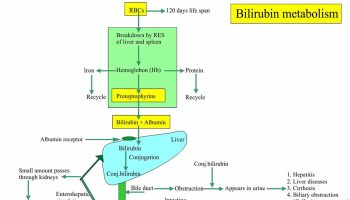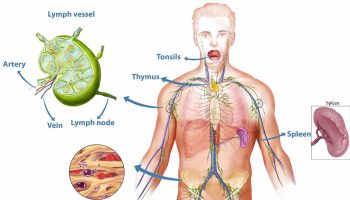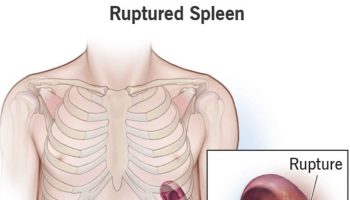What is muscle aches
Muscle aches or muscle pains are common and can involve more than one muscle. Muscle aches can develop almost anywhere in your body, including your neck, back, legs and even your hands. Muscle aches can involve a small area or your whole body, ranging from mild to excruciating. Muscle aches also can involve ligaments, tendons, and fascia. Fascia are the soft tissues that connect muscles, bones, and organs.
Almost everyone has sore, aching muscles now and then. Although most muscle aches and pains go away on their own within a short time, sometimes muscle aches can linger for months.
Muscle aches is most often related to tension, overuse, or muscle injury from exercise or hard physical work. The pain tends to involve specific muscles and starts during or just after the activity. It is often obvious which activity is causing the pain.
Muscle aches also can be a sign of conditions affecting your whole body. For example, some infections (including the flu) and disorders that affect connective tissues throughout the body (such as lupus) can cause muscle aches.
One common cause of muscle aches and pain is fibromyalgia, a condition that causes tenderness in your muscles and surrounding soft tissue, sleep difficulties, fatigue, and headaches.
Muscle aches from minor injuries, stress or exercise is usually helped with simple home treatment. Muscle aches from severe injuries or systemic disease is often serious and requires medical care.
Get immediate medical care if you have muscle aches with:
- Trouble breathing or dizziness or have difficulty swallowing
- Extreme muscle weakness
- You have muscle weakness or cannot move any part of your body
- A high fever and stiff neck
- Sudden weight gain, water retention, or you are urinating less than usual
- You are vomiting.
Schedule an office visit if you have:
- You have a tick bite or a rash or could have had a tick bite
- A rash, especially the “bulls-eye” rash of Lyme disease
- Muscle aches, especially in your calves, that occurs with exercise and resolves with rest
- Signs of infection, such as redness and swelling, around a sore muscle
- Muscle aches after you start taking or increase the dosage of a medication — (particularly statins — medications used to control cholesterol
- Muscle aches that doesn’t improve with self-care e.g., rest, ice, compression, elevation and pain killers
- Your muscle aches lasts more than 3 days.
- You have severe, unexplained pain.
- You have any sign of infection, such as swelling or redness around the tender muscle.
- You have poor circulation in the area where you have muscles aches (for example, in your legs).
- Your muscle aches is linked with starting or changing doses of a medicine, such as a statin.
What causes muscle aches
The most common causes of muscle aches are tension, stress, overuse and minor injuries. This type of muscle aches is usually localized, affecting just a few muscles or a small part of your body.
Systemic muscle aches — pain throughout your whole body — is more often the result of an infection, an illness or a side effect of a medication.
The most common causes of muscle aches and pains are:
- Injury or trauma, including sprains and strains
- Overuse including using a muscle too much, too soon before warming up, or too often
- Tension or stress
Other common causes of muscle aches include:
- Certain drugs, including ACE inhibitors for lowering blood pressure, cocaine, and statins for lowering cholesterol
- Chronic exertional compartment syndrome
- Chronic fatigue syndrome
- Claudication
- Dermatomyositis
- Dystonia
- Electrolyte imbalance, such as too little potassium or calcium
- Fibromyalgia
- Hypothyroidism (underactive thyroid)
- Infections, including malaria, muscle abscess, polio, trichinosis (roundworm)
- Influenza (flu) and other viral illness (influenza-like illness)
- Lupus
- Lyme disease
- Muscle cramp
- Myofascial pain syndrome
- Polymyalgia rheumatica
- Polymyositis (inflammatory disease that causes muscle weakness)
- Repetitive strain injuries
- Rhabdomyolysis
- Rheumatoid arthritis (inflammatory joint disease)
- Rocky Mountain spotted fever
- Sprains
Muscle aches treatment
Muscle aches that occurs during an activity usually signals a “pulled” or strained muscle. These types of injuries usually respond well to R.I.C.E. therapy:
- Rest. Take a break from your normal activities.
- Ice. Place an ice pack or bag of frozen peas on the sore area for 20 minutes several times a day.
- Compression. Use a compression bandage to reduce swelling.
- Elevation. Elevate your foot to help reduce swelling.
For muscle aches from overuse or injury, rest the affected body part and take acetaminophen or ibuprofen. Apply ice for the first 24 to 72 hours after injury to reduce pain and inflammation. After that, heat often feels more soothing.
Muscle aches from overuse and fibromyalgia often respond well to massage. Gentle stretching exercises after a long rest period are also helpful.
Regular exercise can help restore proper muscle tone. Walking, cycling, and swimming are good aerobic activities to try. A physical therapist can teach you stretching, toning, and aerobic exercises to help you feel better and stay pain-free. Begin slowly and increase workouts gradually. Avoid high-impact aerobic activities and weight lifting when injured or while in pain.
Be sure to get plenty of sleep and try to reduce stress. Yoga and meditation are excellent ways to help you sleep and relax.
If home measures aren’t working, your health care provider may prescribe medicine or physical therapy. You may need to be seen at a specialized pain clinic.
If your muscle aches are due to a specific disease, do the things your provider has told you to treat the underlying condition.
These steps may help lower the risk for getting muscle aches:
- Stretch before and after exercising.
- Warm up before exercising and cool down afterward.
- Drink lots of fluids before, during, and after exercise.
- If you work in the same position most of the day (such as sitting at a computer), stretch at least every hour.





